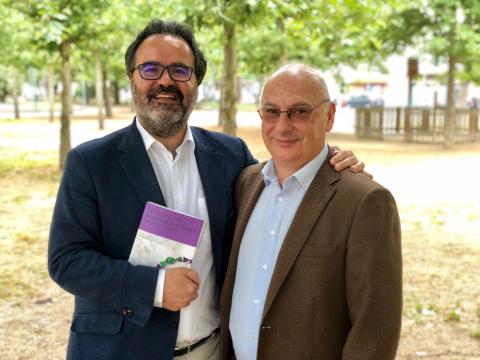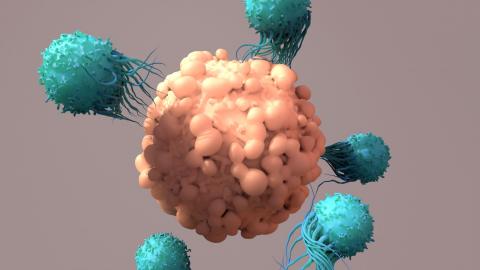Reaction: EMA gives green light to EU's first CRISPR gene-editing drug
The European Medicines Agency (EMA) has recommended approval of the first drug in the European Union to use the CRISPR/Cas9 gene-editing technique. The drug, Casgevy, is indicated for the treatment of two rare inherited diseases, beta thalassaemia and sickle cell disease (sickle cell anaemia), caused by genetic mutations that affect the production or function of haemoglobin, the oxygen-carrying protein in red blood cells. Both conditions are debilitating and potentially fatal. The EMA opinion will be sent to the European Commission for a decision on an EU-wide marketing authorisation.

Lluís Montoliu - EMA CRISPR EN
Lluís Montoliu
Research professor at the National Biotechnology Centre (CNB-CSIC) and at the CIBERER-ISCIII
Today, 15 December, the EMA recommended marketing authorisation for the first CRISPR therapy in the European Union to treat two serious blood diseases, sickle cell disease and beta thalassaemia, called Casgevy. This third regulatory agency decision comes after the pioneering approval by the UK's MHRA on 16 November, followed by approval by the US FDA on 8 December. It is a therapy derived from basic research, begun more than 15 years ago, that is now an effective treatment for lifelong cure after a single administration of gene-edited blood stem cells, substituting one type of globin for another. The beta-globin mutated in these diseases is replaced by foetal gamma-globin, which is reactivated to continue functioning in adulthood, unlike what normally happens, which is deactivated and silenced after birth. CRISPR tools are used here to block the function of a protein that is responsible for keeping the gamma-globin gene silenced in adults and thus awaken the production of gamma-globin, which is what replaces beta-globin, providing the cure that these patients need.
This is excellent news, but I fear that patients and their families will still have to wait to benefit from these innovative new therapies. Following the EMA recommendation, it is now up to the European Commission to decide on the marketing of this therapy in Europe. This will be followed by the expected authorisation by the Spanish agency (AEMPS) and then a price for administering this therapy will still have to be set by the Interministerial Commission on the Prices of Medicines and Health Products of the Ministry of Health, in discussion with the pharmaceutical companies that have launched this therapy: Vertex Pharmaceuticas and CRISPR Therapeutics, the latter being the company promoted by the Nobel Prize winner Emmanuelle Charpentier. In other words, I am afraid that there is still a long administrative and bureaucratic road ahead before this CRISPR therapy can be administered in Spain.
In the USA, the agreed price for administration is 2.2 million dollars per patient. These high prices for access to these therapies raise doubts about the accessibility of these therapies to all patients who need them (around 400,000 people are born each year with sickle cell anaemia, 300,000 of them in Africa alone). This is the challenge and ethical dilemma that we have to resolve: to ensure that therapies can be administered to everyone who needs them and to do so at reasonable prices that can be afforded by the national health systems of each country, respecting the legitimate right of pharmaceutical companies to make a profit after the investment made in the development of the therapy, without forgetting that this therapy, like many others, arises from academia, from basic research, previously financed with public funds.
This recommendation for authorisation by the EMA is welcome, but there is still time for this therapy to begin to bring joy to Spanish sickle cell and beta thalassaemia patients who may benefit from it.



